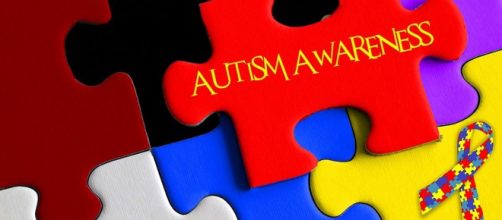Autism specialist, Juergen Hahn, the head of biomedical engineering at Rensselaer Polytechnic Institute and his team of scientists may be on the verge of cutting edge technology with regards to Autism Diagnosis. According to Science Daily, "A recent paper authored by Hahn and Jill James from the University of Arkansas for Medical Sciences (UAMS), was published in the journal Research in Autism Spectrum Disorders."
Gulf News noted that a new blood test may predict with as much as 90 percent accuracy, the chances of a pregnant woman bearing an Autistic child.
This is particularly useful when a second child is conceived. However, quite what any in-utero treatment may be available, is still not known. In the meantime, the autistic spectrum is at least, attracting a lot of medical and psychological interest, which is good news for those who deal with the condition. However, there is some misunderstanding of ASD, and this is my experience.
Autism and me
I am Autistic, and I haven't had the best time with it. I was diagnosed in 2011 when I was 25-years-old. That is late nowadays, as a diagnosis tends to happen in early childhood. But that is really a recent thing because, in the past, people would get missed through poor science or testing methods. We have come a long way in my lifetime but only on the medical side of things.
Personally, after I got my ASD diagnosis I was happy I had an explanation for why I was different. It made me feel more secure and I had a reason to tell people why I was strange, but that is where it ended.
Life after my diagnosis
Since my diagnosis I still have problems maintaining relationships and finding someone to love is seemingly impossible now. I am currently at university, and it is going fine, but getting a good job and improving my life are overshadowed by the things I want most of all. I fear I will never get real love. Love of a woman or friends, or whatever, is the one thing in my eyes that really separates me from everyone. It is the main thing that makes me different.
To be normal
I don't want to be different and I want to be like everyone else. I want the good and the bad, I want laughter and the arguments. I just don't want to be the one left out in the cold. But that comes with problems as my need to be like everyone else makes me even more of an outsider than I really am. It makes me look like a problem to be solved or a disease to be cured.
The Autistic question
I watched a video on YouTube called "Anarchism and Autism Acceptance." It's a great video from an Autistic content creator. He goes on in the video about how neurotypicals or NT's (people who aren't autistic), are forcing us into boxes for their own convenience. But to our inconvenience, society dictates that we must change to suit the needs of NT's.
Why is this? It is much harder for Autistic people to function in a social environment than NT's. in fact, it would be a lot easier for NT's to meet the needs of Autistic people.
Let's meet halfway?
For example, Autistic people tend to be very intelligent and hard workers, but a lack of employment and underemployment is a serious problem for Autistic people. According to the National Autistic Society TMI Employment Report, only 16 percent of Autistic adults are in full-time work and only 32 percent of Autistic adults are in some form of paid work. This is a shocking and unnecessary problem.
In job interviews, the people conducting the interview should consider that lack of eye contact isn't a sign of disinterest; or an Autistic person's awkwardness and difficulty in such a tense environment means that he or she is incapable of that job.
Furthermore, that simple fact that a person is Autistic in the first place should not exclude a person from any job. In fact, there is good evidence that employers are losing out on not hiring Autistic people.
The light at the end of the Autistic tunnel
There are initiatives in place to get more people like me in work and to change people's opinions on Autism but that must come from this knowledge - there is nothing wrong with me - I was born this way. People must accept that we are different, but difference isn't a bad thing and that being neurotypical isn't the norm. There is still, wherever I look, the word "disorder" after Autism in almost every description of my condition. But I don't have a disorder - I'm simply me.
I have a different way of socialising and I look at the world differently, but that's not a bad thing.
Accepting the truth
This is what I believe but I still privately feel like if there was a cure for Autism, I would probably take it, and I hate that. I still have to accept myself. I have to find a way to practice what I preach. All my life I saw things that everybody takes for granted, as milestones to cross. For example, I would go to parties and to me, that was a big deal. Then I would move on to something else like, actually talking to someone at a party and so on. I have thought of myself as broken for so long that this step maybe my biggest, and I hope that once I've made it I will get what I want. I hope once I accept myself then I will let other people accept me too.



